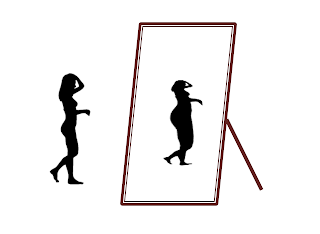If you or someone close to you has been suffering from an eating disorder, you may be wondering if hypnotherapy could form part of a treatment plan.
There’s no quick fix when it comes to recovering from an eating disorder and hypnotherapy alone won’t be a cure but it can be useful as part of a broader set of treatments that work together to do this.
Here are some of the ways that hypnotherapy can help with the psychological aspects of recovering from an eating disorder.
How Hypnotherapy Can Help Recovery from Eating Disorders
Recovering from an eating disorder can require a lot of types of support, and the mainstay of this is based on the end goal of getting back to a healthy weight.
Alongside this, psychological support can address the reasons behind why the eating disorder developed in the first place and this is the part that can be strengthened through hypnotherapy.
There are a few ways that hypnotherapy can help with different parts of the recovery process and these include:
#1 Changing the Relationship with Food
Anorexia, bulimia and binge eating are all connected to an unhealthy attitude to food.
With anorexia and bulimia, food is often used as a form of control. There may be a lot of things in day-to-day life that you have no control over and your weight may be the only thing that can feels as though it is in your hands.
Binge eating is a bit different but it’s also based on an unhealthy relationship with food. In this case, food is often used to deal with emotions, especially stress, anxiety and depression.
Because hypnotherapy bypasses the unconscious mind and “speaks” to the subconscious mind that is more receptive to suggestions, it can help to change your attitude to food and your relationship with it.
For example, this can help you to see that food isn’t the only way to cope with negative emotions where binge eating is the main issue.
Hypnotic suggestions are a really powerful way of doing this and can help you to see things differently.
#2 - Figuring Out What Triggered an Eating Disorder
There can be a lot of factors involved in the development of an eating disorder but ultimately, something has to set it in motion. You may not remember (or have even recognised it as a contributing factor in the first place) but there is usually a food related experience or situation that was at least partially responsible for this and the memory is lodged somewhere in your subconscious mind.
By tapping into your subconscious mind, hypnotherapy can help you to understand this, which is really helpful from a recovery viewpoint.
#3 - Feeling Better About Yourself
Eating disorders tend to be associated with self-loathing, and it’s important for your recovery that you begin to accept your body (and yourself) and learn to love who you are.
This is another way that hypnotherapy can help in the recovery process. Hypnotic suggestions and visualisations can encourage you to see yourself in a better light and boost your self-esteem.
#4 - Reducing Anxiety and Stress
Negative emotions such as stress and anxiety can be closely linked to eating disorders. Sometimes, an eating disorder can develop as a coping mechanism
Hypnotherapy has a great success rate in reducing anxiety and stress and encouraging you to feel more relaxed. Hypnotic suggestions can give you the tools to cope with anxiety and stress in healthier ways and teach relaxation techniques too.

Thank you for sharing this inf informative post. It is very helpful.
ReplyDeleteBest Hypnotherapist in Philadelphia